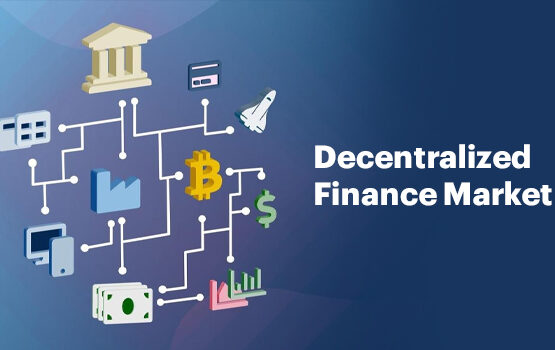Cryptocurrencies have emerged as a revolutionary force in the world of finance, offering users a decentralized and secure alternative to traditional financial systems. However, cryptocurrencies rely heavily on a technology called blockchain to function. In this blog post, we will explore why blockchain technology is crucial for the success of cryptocurrencies.
Blockchain technology provides a distributed ledger that records all transactions in a secure and transparent way. It enables a trustless system that eliminates the need for intermediaries such as banks, enabling faster and cheaper transactions. The use of blockchain technology in cryptocurrencies also ensures the security and transparency of transactions, reducing the risk of fraud and manipulation.
As cryptocurrencies continue to gain popularity, it is becoming increasingly clear that blockchain technology is the backbone of their success. In this blog post, we will delve deeper into the importance of blockchain technology in cryptocurrencies, exploring its role in security, efficiency, cost-effectiveness, and innovation. We will also discuss how blockchain technology is disrupting traditional finance and enabling financial inclusion and access. By the end of this blog post, you will have a better understanding of why blockchain technology is essential to the success of cryptocurrencies.
Blockchain training can be helpful for individuals interested in working with cryptocurrency.
Security and Decentralization: The Foundation of Cryptocurrencies
Security and decentralization are the two fundamental aspects that underpin cryptocurrencies. These features are made possible through the use of blockchain technology.
Decentralization refers to the fact that there is no central authority controlling cryptocurrencies. Instead, they are maintained by a network of users who validate transactions and ensure the integrity of the system. This distributed approach makes it difficult for any single entity to control or manipulate the system. The use of a decentralized network makes cryptocurrencies more secure and resistant to attack.
Security is also a critical aspect of cryptocurrencies. The use of blockchain technology provides a secure and transparent way of recording transactions. Each transaction is verified by multiple nodes on the network, making it nearly impossible for anyone to tamper with the system. Additionally, the use of cryptography ensures that transactions and user identities are kept confidential and secure.
These two features work in tandem to make cryptocurrencies more secure than traditional financial systems. For example, in traditional banking systems, a central authority such as a bank or government can freeze an account, manipulate the value of currency, or control the flow of funds. With cryptocurrencies, there is no central authority, making it nearly impossible for anyone to control the system.
Blockchain: Ensuring Trust and Transparency in Transactions
Blockchain technology plays a critical role in ensuring trust and transparency in transactions. The decentralized and distributed nature of blockchain means that every transaction is recorded on a public ledger that is accessible to all participants in the network. This creates an environment of transparency that is not possible with traditional financial systems.
In addition to transparency, blockchain technology also ensures trust in transactions. Every transaction on the blockchain is validated by a network of nodes, which ensures that the transaction is legitimate and that the funds being transferred actually exist. The use of cryptographic algorithms also ensures that the transaction is secure and cannot be altered or manipulated.
The trust and transparency provided by blockchain technology are especially important in the context of cryptocurrencies. With traditional financial systems, trust is placed in a central authority, such as a bank or government. With cryptocurrencies, however, trust is placed in the technology itself, as every transaction is validated by a decentralized network of users.
The use of blockchain technology in cryptocurrencies also eliminates the need for intermediaries such as banks, which can introduce additional fees and potential points of failure. This creates a more direct and efficient transactional system, where trust and transparency are provided by the technology rather than a third party.
Efficiency and Cost-effectiveness: The Advantages of Using Blockchain in Cryptocurrencies
Efficiency and cost-effectiveness are two significant advantages of using blockchain technology in cryptocurrencies. The decentralized and distributed nature of blockchain technology allows for faster and cheaper transactions compared to traditional financial systems.
Firstly, blockchain technology enables direct peer-to-peer transactions, eliminating the need for intermediaries such as banks or payment processors. This results in faster transaction times and lower transaction fees. In contrast, traditional financial systems involve a complex web of intermediaries, each of which takes a cut of the transaction fees and increases the transaction time.
Secondly, blockchain technology eliminates the need for physical infrastructure, such as bank branches or ATMs. This makes it easier for individuals in remote or underdeveloped areas to access financial services. Additionally, blockchain technology enables microtransactions, allowing for smaller transactions that would be uneconomical using traditional financial systems.
Thirdly, blockchain technology allows for programmable money, which means that transactions can be automated and executed without the need for human intervention. This can significantly reduce the time and cost associated with traditional financial transactions, such as wire transfers or international payments.
Finally, the use of blockchain technology in cryptocurrencies also reduces the risk of fraud and errors. Each transaction on the blockchain is verified by multiple nodes, ensuring that the transaction is legitimate and that the funds being transferred actually exist. This eliminates the need for manual verification and reduces the risk of human error.
Disrupting Traditional Finance: The Potential of Blockchain and Cryptocurrencies
Blockchain technology and cryptocurrencies have the potential to disrupt traditional finance in several ways. The decentralized and distributed nature of blockchain technology, combined with the benefits of cryptocurrencies, presents a significant challenge to traditional financial systems.
One way in which blockchain technology and cryptocurrencies are disrupting traditional finance is through the disintermediation of financial transactions. With traditional financial systems, intermediaries such as banks and payment processors are required to process transactions. These intermediaries take a cut of the transaction fees, which can be significant for large transactions. In contrast, blockchain technology enables direct peer-to-peer transactions, eliminating the need for intermediaries and reducing transaction fees.
Another way in which blockchain technology and cryptocurrencies are disrupting traditional finance is through financial inclusion. Traditional financial systems are often inaccessible to people in underdeveloped areas or those without a bank account. However, blockchain technology and cryptocurrencies can provide financial services to these individuals, as they do not require physical infrastructure and can be accessed using only a mobile phone.
Blockchain technology and cryptocurrencies are also disrupting traditional finance through the potential to reduce fraud and errors. The use of cryptographic algorithms and the validation of transactions by multiple nodes makes it nearly impossible to manipulate the blockchain. This increased security can reduce the risk of fraud and errors, which can be costly for traditional financial systems.
Furthermore, blockchain technology and cryptocurrencies have the potential to improve the efficiency and speed of financial transactions. With traditional financial systems, international transactions can take days to complete, and the fees can be significant. However, blockchain technology enables instant and low-cost international transactions, which can significantly reduce the cost and time associated with traditional financial systems.
Reducing the Risk of Fraud and Manipulation: How Blockchain Technology Improves Cryptocurrency Transactions
- Cryptographic algorithms: Each transaction on the blockchain is verified by multiple nodes, which use complex mathematical algorithms to validate the transaction, ensuring that the transaction is legitimate and that the funds being transferred actually exist.
- Immutable transactions: Once a transaction is added to the blockchain, it cannot be altered, ensuring that the transaction remains secure and tamper-proof.
- Decentralization: The decentralized nature of blockchain technology makes it nearly impossible for any single entity to manipulate the blockchain. Each node on the blockchain has a copy of the entire ledger, and each new transaction is verified by multiple nodes.
- Transparency: All transactions on the blockchain are publicly visible, making it difficult for fraudulent activity to go unnoticed.
- Smart contracts: The use of smart contracts allows for automated and transparent execution of transactions, further reducing the risk of fraud or manipulation.
- Security of personal data: Blockchain technology allows for anonymous transactions, eliminating the need for users to disclose sensitive personal information.
Overall, these factors contribute to a more secure and trustworthy financial system, reducing the risk of fraud and manipulation in cryptocurrency transactions.




